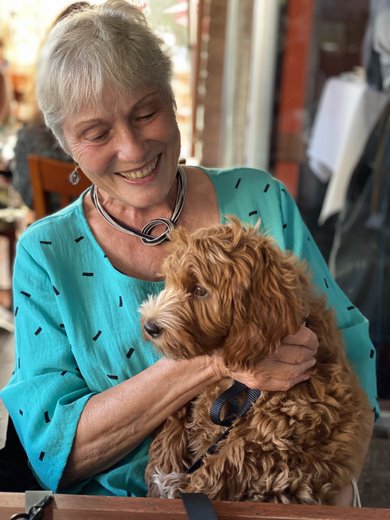
In this parashah, Moses goes to Mount Nebo to look at the land of Israel before passing away at the age of 120. Parashat Haazinu concludes with G‑d’s instruction to Moses to ascend the summit of Mount Nebo, from which he will behold the Promised Land before dying on the mountain. “For you shall see the land opposite you, but you shall not go there, into the land which I give to the children of Israel.”
Moses led the People to this very place but was not allowed to enter the land with his People. His job was done, and now it was up to the next generation to make their place in the world. And yet, because of Moses’ deeds and words, he will never be forgotten.
The greater part of the Torah reading consists of a 70-line “song” delivered by Moses to the People of Israel on the last day of his earthly life. Moses cries out to G-D and the People with longing. He describes his journey with passion, love, and a great deal of sadness. He has come to terms with his impending death.
In Deuteronomy 32:7-11, Moses reminds the people of the relationship G-d has with them. “Remember the days of old, consider the years of ages past; ask your parent, who will inform you, your elders, who will tell you. G-d found them in a desert region, in an empty howling waste. G-d guarded them…like an eagle who rouses its nestlings, gliding down to its young.” The visual of an eagle circling its nest and young, making certain they are protected, safe, warm, and fed, is like the good parent we strive to be. I hope this is how my children will remember me.
In Deuteronomy 32:15-20, Moses also admonishes the People: “Yeshurun grew fat and kicked-you grew fat and gross and coarse. They incensed G-D with alien things. They sacrificed to demons, to Gods they had never known. You neglected the Rock who begot you, forgot the G-D who labored to bring you forth. G-D said: I will hide My countenance from them and see how they fare in the end. For they are a treacherous breed, children with no loyalty in them. “
With these words, Moses is less loving and more vindictive. Words like this can leave our children scarred. It’s like the mother telling her child, “I labored 27 hours when you were born. You grew up unloving, fat, and ugly. You never call me. You’ll never be any good and will be punished when I die.” I hope I am wise enough never to say anything like this to my children. I do not want them to remember me as being cruel and unfeeling towards them or anyone else.
Parents provide lessons for their children, and for good or bad, we are role models for our children. It behooves us to remember that our relationships are what’s most important. The memories we leave for our loved ones allow us to live on and not be forgotten. But how is it that we want to be remembered?
At the end of life, when approaching death, we must continue to create joy in the moment and find ways to enjoy what we now have. Moses’ words illustrate that we need a meaningful relationship with our loved ones, even though we know that relationship must end with death.
Remember that birth is a beginning; death is the destination, and life is our journey. Our words and deeds during that journey create the memories we leave for our loved ones. Words matter and what we say to people will live on far beyond our mere lifespan.
Related Posts

Parashat Yom Rishon shel Rosh HaShanah

Cultivating a Culture of Accountability and Belonging


